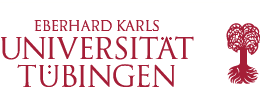Visual information processing in perception and action
Summer term 2020 / 14:15-15:45 (virtual using Zoom)
Guests are welcome!
Note, that the colloq will be held virtual using
video-conferencing software (Zoom). For instructions of how to join
us, please see the following room in Ilias:
https://ovidius.uni-tuebingen.de/ilias3/goto.php?target=crs_2525165.
- 2020-04-17 Fri 14:15-16:00
-
- postponed
- 2020-04-24 Fri 14:15-16:00
-
- postponed
- 2020-05-08 Fri 14:15-16:00
-
- retreat / computer science department
- 2020-05-15 Fri 14:15-16:00
-
- Timo Stein, Group Brain & Cognition, University of Amsterdam: Post-discussion of Thursday talk: Bayes & the dissociation paradigm
- 2020-05-22 Fri 14:15-16:00
-
- Zülfikar Yoleri (planning talk for BSc thesis).
- David Wiedner: Testing the Performance of Neural Network Ensembles Using Confidence Ratings in Image Classification Tasks (results talk for BSc thesis)
- 2020-05-29 Fri 14:15-16:00
-
- Iris Zerweck & Sascha Meyen: Bayesian Analysis of the Indirect Task Advantage (ITA) — Kruschke, J. K. (2018). Rejecting or accepting parameter values in Bayesian estimation. Advances in Methods and Practices in Psychological Science, 1(2), 270-280.
- 2020-06-12 Fri 14:15-16:00
-
- Kriti Bhatia: Amodal Information in Visual Perception and ‘Perceptual’ Actions
- Journal Club: Sascha Meyen - Doerig, A., Schurger, A., Hess, K., & Herzog, M. H. (2019). The unfolding argument: Why IIT and other causal structure theories cannot explain consciousness. Consciousness and cognition, 72, 49-59.
(With some insights from the Nao Tsuchiya's talk in the Mathematical Consciousness seminar that explains their response: Tsuchiya, N., Andrillon, T., & Haun, A. (2019). A reply to “the unfolding argument”: Beyond functionalism/behaviorism and towards a truer science of causal structural theories of consciousness.)
- 2020-06-19 Fri 14:15-16:00
-
- Catarina Amado: Congruency effects: the influence of ITI and its impact on the fMRI.
- 2020-06-26 Fri 14:15-16:00
-
- Iris Zerweck: Testing the ITA for processing of numbers
- Journal Club: Catarina Amado - Unconscious determinants of free decisions in the human brain (Soon C. S., Brass M., Heinze H. J. & Haynes J.D., Nature Neuroscience, 2008)
- 2020-07-03 Fri NOTE: DIFFERENT TIME: 16:00-17:30
-
- Sascha Meyen: Predicting Group Performance Limits with CWMV: A Journey From Probability Theory to Analysis to Geometry and Back
- 2020-07-10 Fri 14:15-16:00
-
- Helen Alber: Predicting the Limits of Group Performance
- Journal Club (postponed): Iris Zerweck - Cognitive modelling reveals distinct electrophysiological markers of decision confidence and error monitoring (Rausch M., Zehetleitner M., Steinhauser M., Maier M. E., NeuroImage, 2020)
- 2020-07-17 Fri 14:15-16:00 NOTE: Due to time-constraints, no introduction to the topic will be given in this session. Therefore (and as an exception), this session is not open for external guests.
-
- Journal Club: Kriti Bhatia - Koivisto, M., Grassini, S., Salminen-Vaparanta, N., & Revonsuo, A. (2017). Different Electrophysiological Correlates of Visual Awareness for Detection and Identification. Journal of Cognitive Neuroscience, 29(9), 1621–1631.
- Catarina Amado: When can unconscious priming be claimed? What does an Indirect Task Advantage imply?
- 2020-07-24 Fri 14:15-16:00
-
- Journal Club: Zülfikar Yoleri
- Sascha Meyen: The sleeping beauty problem (or: how should we interpret probabilities?)
- 2020-08-18 Tue 16:00-17:30 NOTE: DIFFERENT DAY+TIME; This will NOT be a virtual meeting, we meet in person in A103. Please make sure you adhere to the social distancing rules of the University.
-
- Zülfikar Yoleri: Investigating neural markers of error detection and error awareness in a masked prime classification task (results talk for B.Sc. thesis)
- Your talk:
-
When preparing a talk for our colloquium, please:
- Practice your talk!
- Print the final version of your talk once on paper (6 slides per page) and bring it to the colloquium.
- Send a PDF-file (and if available a PowerPoint file) of the final version of your talk by email to V. Franz before the talk. Details for the PDF-file: 1 slide per page and make sure that you do NOT create separate pages for each step of the animations.
- Adhere to the time-limits during your talk. Practice that!
- Present data as graphs (supplemented but not supplanted by numerical statistics).
- Provide your name etc. at the title-slide.
- Practice your talk!
- Journal club:
- 10 min presentation (please make sure you adhere to these time-limits!). In the journal club a member of our group present an influential, scientific article relevant to our current work. Articles should typically be recent (e.g., 3-5 years), but could also be older if of special interest. Articles will be available at our file-server (with the path being e.g., EC-STORE/literature/articles/journal-club-SS2020), please ask a member of our group if you do not know how to access those. Please make sure that a meaningful reference (containing title, author, year, journal) is presented at this web-page (either by you or by sending an email to V. Franz) and that the full APA-reference in the correct APA-formatting is present on the title-slide of your presentation.

